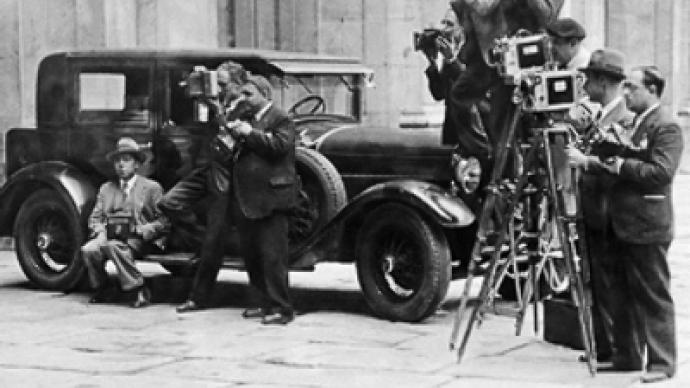Medvedev defends freedom of speech and “telling the truth”

During a media forum in Moscow, the Russian president reminded journalists of their duty to “tell the truth” while providing some interesting observations from his trip to the United States.
Any discussion that considers the question of freedom of speech in Russia invariably takes place on a battlefield littered with loaded stereotypes. Indeed, it is a bit of an understatement to say that Russia, which is still emerging from its 70-year-old communist cocoon, rarely receives a fair case in the Western media.
But it seems the Russian government will no longer remain silent on the issue.
President Medvedev, after expressing his opinion that “everything is alright” with freedom of speech in Russia, told the audience about a revealing conversation he had while visiting the United States.
“Some time ago my partners from the US said that everything was bad [in Russia]: You have the wrong kind of TV, the wrong kind of radio, the wrong kind of newspapers.”
In response to these comments, the Russian president said he presented them with the question: “Have you seen or read anything for yourself from what is available in Russia’s mainstream media?”
Medvedev said they admitted that they had not seen or read anything in the Russian media – much less understood the Russian language. As a result, they based their conclusions about the state of affairs in Russian journalism solely on what their domestic media outlets were telling them.
“After this,” the president said, “we began a discussion on what the media should publish in general. It is a very complex philosophical question.”
Medvedev, who experienced harsh Western news reports in the early moments of last year’s tragic events in South Ossetia, stressed the importance of media responsibility and competence.
“There will always be a wide variety of views regarding the depth of freedom of speech,” Medvedev said during the European and Eurasian media forum on Wednesday. “In my opinion, freedom doubtlessly entails responsibility and competence.”
The Russian president then reminded the members of the media community of their prime duty to be straightforward in their reporting.
“A journalist’s main duty is to tell the truth,” Medvedev told the members of the forum. “How you do that depends on you.”
The media battle for the high ground
It may seem ironic to some observers that Russia – which on Monday broadcast a four-hour Q&A session with Prime Minister Vladimir Putin – is being challenged on the freedom of speech. After all, it would be very difficult to name any other country that gives its citizens the ability to publicly grill their leaders on a wide range of subjects on live television.
Yet the course of media relations between Russia and the West, which has been the subject of more than one dissertation, has never been smooth.
Just last month, Putin fielded more questions concerning the fate of former Yukos owner Mikhail Khodorkovsky, who was sentenced to 8-and-a-half years in prison for tax fraud.
In response to the question, Putin mentioned Bernie Maddoff, the infamous “Ponzi king” who was sentenced 99 years in prison for bilking investors out of billions of dollars.
“Take Bernard Madoff in the United States,” Putin said. “He got a life sentence and no-one blinked.”
Meanwhile, “the activities of those implicated in these criminal affairs cost Russia billions,” referring to the Yukos case, alleging that there had been “attempts on the life and health of individuals,” Putin said.
Western media bias against Russia has revealed itself in other ways, but perhaps none more glaring than the war in South Ossetia that was launched by Georgia last year.
The conflict in the Caucasus was short and nasty, and although Russia emerged victorious on the military front, it took a beating in the public-relation trenches as foreign media, giving most of the spotlight to Georgian politicians and others sympathetic to their cause, quickly painted Russia as the aggressor.
It took over one year for the truth to be revealed when a final report, commissioned by the Council of the European Union, with the help of 30 European military, legal and history experts, exonerated Russia from charges that it had started the conflict.
“The shelling of Tskhinvali (the South Ossetian capital) by the Georgian armed forces during the night of 7 to 8 August 2008 marked the beginning of the large-scale armed conflict in Georgia,” the report said.
It said later: “There is the question of whether [this] use of force… was justifiable under international law. It was not.”
It also says Georgia's claim that there had been a large-scale Russian military incursion into South Ossetia before the outbreak of war could not be “sufficiently substantiated.”
Although Russia said it was satisfied that the report delivered an "unequivocal answer" on the question of who started the conflict, it is unfortunate that the truth remained hidden for so long and goes far at explaining the Russian president's position.












